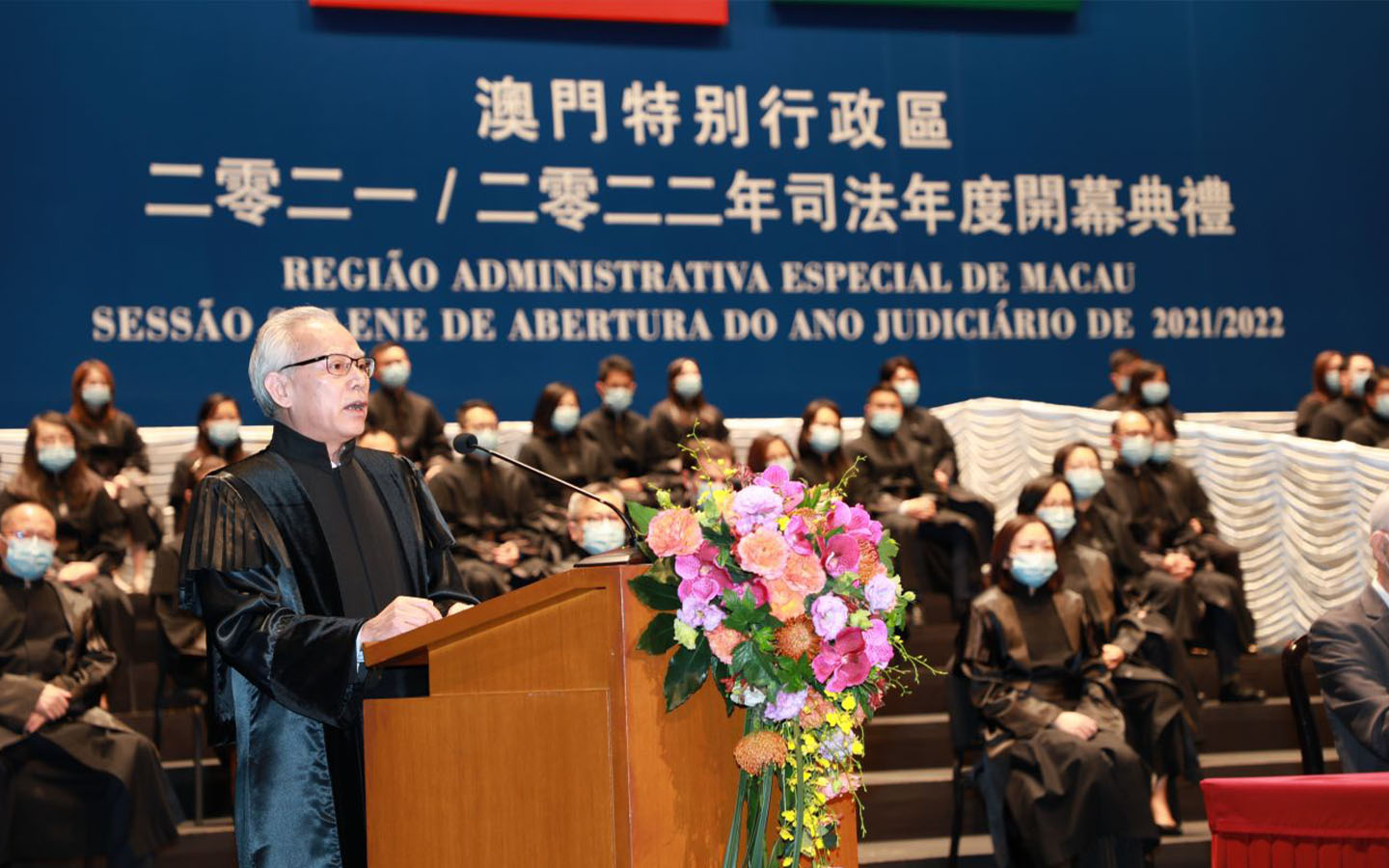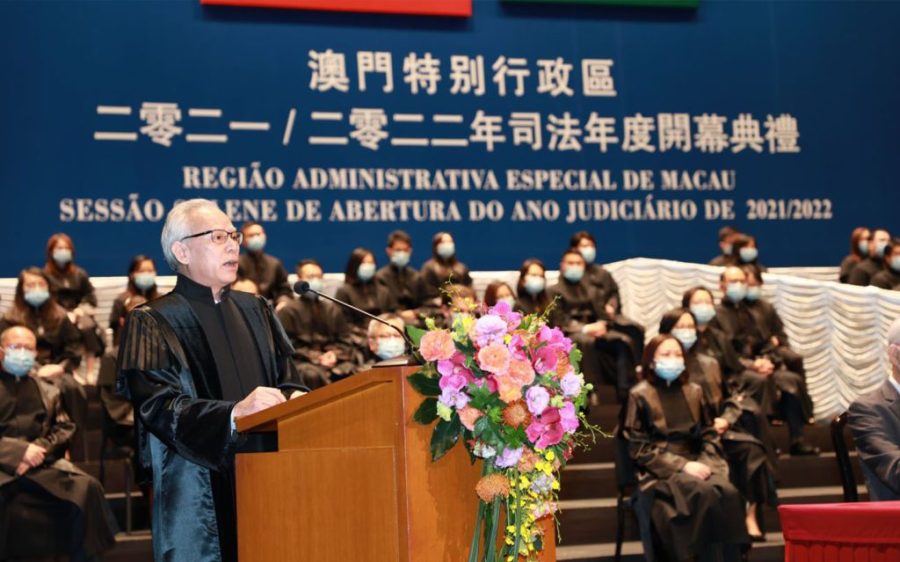Sam Hou Fai, Macao’s chief justice, has resigned from his various posts in the judicial system, with the decision to take effect from 28 August, according to an executive order that was published this morning.
The document states that Sam will no longer serve as president of Macao’s court of final appeal, nor as a judge on the court of final appeal or as a member of the independent commission of the recommendation of judges.
His resignation is a strong indication that he is gearing up for an election campaign to become Macao’s next chief executive (CE), after incumbent Ho Iat Seng announced his decision last Wednesday not to stand for reelection due to health concerns. Ho’s decision broke with the precedent set by his two predecessors who both successfully ran for a second five-year term.
Nomination of candidates for the upcoming CE election on 13 October is not due to begin until 29 August, and Sam is widely expected to be a key contender. Last Thursday, the magistrate was asked by local media whether or not he would be joining the election, to which he replied that he was “considering” doing so and that he had a longstanding “desire to serve Macao.”
[See more: Here’s what to know about Sam Hou Fai, who could be running in Macao’s CE election]
In order to officially become a nominee, however, Sam will first have to garner 66 signatures from the 400-member CE Election Committee, which is the body that will decide Macao’s next leader.
Currently, the only individual that has publicly announced his plan to run in the race is Jorge Chiang, a relatively unknown entrepreneur, who is in charge of the Macau Institutionalism Association and the Macao Lotus Commerce Association.
Born in Zhongshan, Guangdong province, Sam not only has legal experience in Macao, but also mainland China and Portugal. His candidacy would make him the first high-ranking judge in the SAR’s history to stand for office.
CE elections in Macao are organised every five years. The first was held on 15 May 1999 and was the only CE election to have more than one candidate running. All subsequent elections featured only one candidate, as other individuals wishing to appear on the ballot failed to gain the prerequisite number of signatures from the CE Election Committee.






